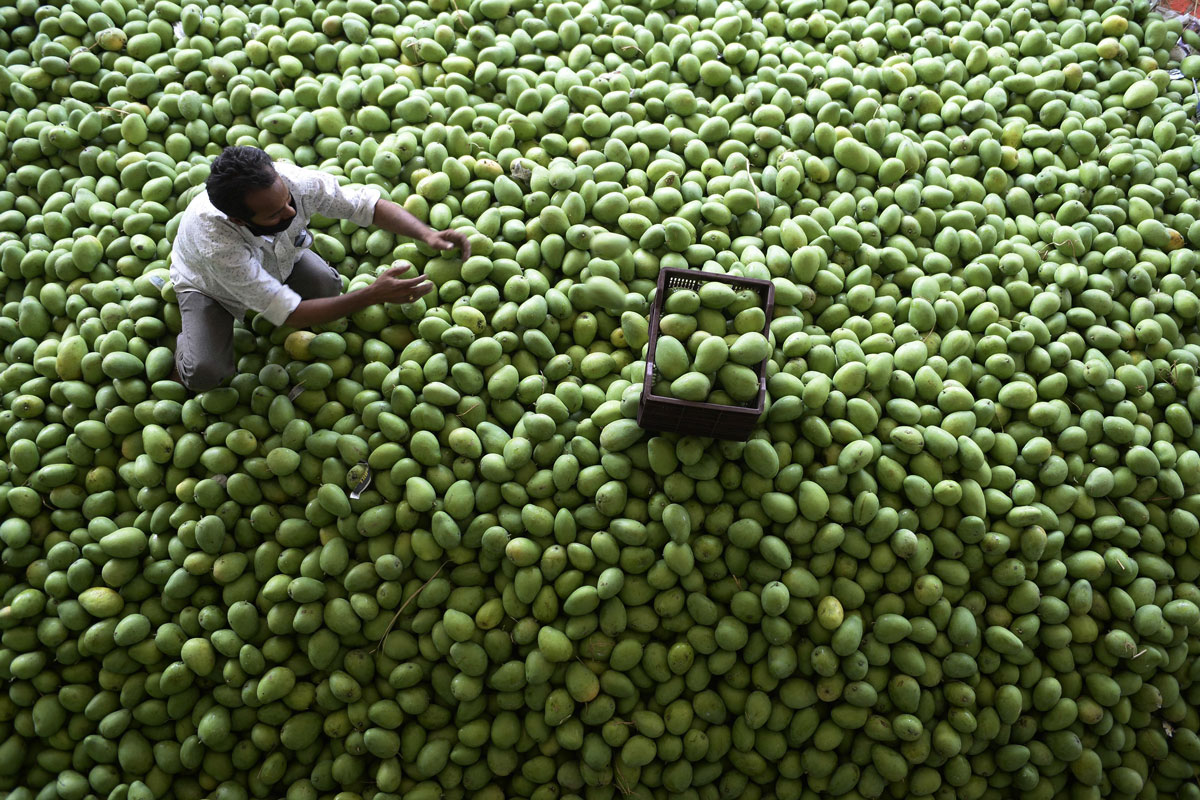‘Bihar poll crucial for India’
CPI (M-L) Liberation general secretary Dipankar Bhattacharya became actively involved in politics after joining the Indian Statistical Institute, Kolkata.
1. The latest percentage is the lowest since November 2019.
2. The plunge in March is primarily due to the sharp fall in food prices in the country.

A labourer sorts raw mangoes at the Gaddiannaram fruit market during a government-imposed nationwide lockdown as a preventive measure against the COVID-19 coronavirus, on the outskirts of Hyderabad on April 16, 2020. (Photo: AFP)
India’s wholesale price inflation (WPI) eased to a four-month low of 1 per cent in March from 2.26 per cent in February, as prices of food and non-food products fell, government data showed on Wednesday.
The latest percentage is the lowest since November 2019.
Advertisement
The plunge in March is primarily due to the sharp fall in food prices in the country. Food inflation in March fell to 4.91 per cent from 7.79 per cent in the previous month.
Advertisement
On a year-on-year (YoY) basis, the Wholesale Price Index (WPI) data furnished by the Ministry of Commerce and Industry on Monday showed a decelerating trend during March, as inflation had risen to 3.10 per cent during the corresponding month of 2019.
Reports suggest that the ease in the prices of wholesale products may continue the same trend as the nationwide lockdown throughout the month of April brings demand and supply of other non-essential products to a halt.
On Monday, another set of data showed that drop-in food prices decelerated the rise in India”s retail inflation during March to 5.91 per cent from February”s 6.58 per cent.
However, the consumer price index (CPI), or retail inflation, was at 2.86 per cent in the corresponding month of last year.
The data showed that even though the consumer food price index remained at an elevated level, its rise was slower during March at 8.76 per cent, compared with 10.81 per cent recorded in February 2020 and 0.30 per cent in the corresponding period of last year.
“Amid a low response rate, the WPI recorded inflation of 1 per cent for March 2020, in contrast to our expectation of a disinflation of 0.6 per cent. This divergence appears to have been led by minerals, crude oil and natural gas, with the index levels not fully reflecting the plunge in commodity prices that has taken place in the aftermath of the Covid-19 outbreak,” said Aditi Nayar, Principal Economist, ICRA.
“At present, we expect the WPI to record a disinflation of 1.5 per cent in FY2021, in contrast to the mild inflation of 1.7 per cent in FY2020,” Nayar added.
Advertisement